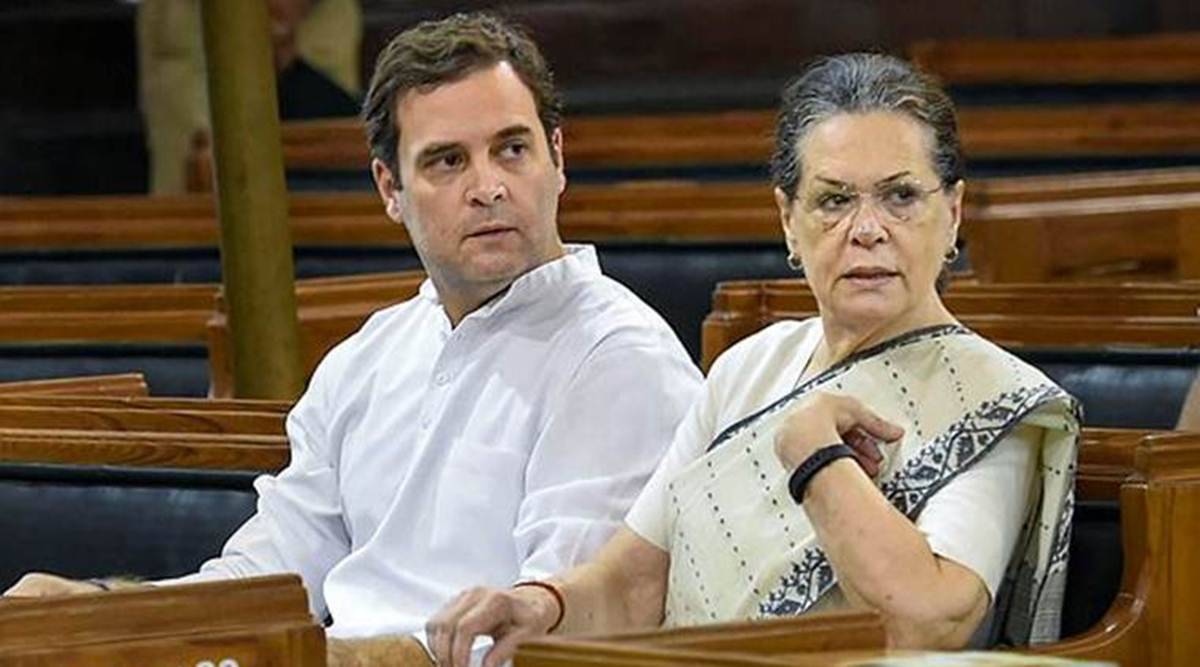Despondency and uncertainty engulf the party as Rahul keeps options open on leadership.
Pointsman Ahmed Patel’s death and the flip flop of Rahul Gandhi have engulfed Congress in an aura of uncertainty and despondency. Sonia Gandhi prefers not to remain at the helm. Due to her health problems she recently spent time in Goa, away from New Delhi’s contaminated air. Party’s deemed helmsman, Rahul Gandhi, is not willing to formally step in and relieve his mother of her “interim” charge, whose tenure ended in August. As preparations are afoot for electing a new president, a piquant situation has arisen. All know that none can defeat Rahul Gandhi if he is in the fray. As he is not indicating whether he will throw his hat into the ring or back a proxy, no one is prepared to stand up and be counted as a candidate. Leadership vacuum could thus be the appropriate phrase to define the state of affairs in the party.
In the past 42 years, barring seven years between 1991 and 1998—five years of P.V. Narasimha Rao and two years of Sitaram Kesari—presidentship of the party has devolved within the Nehru-Gandhi family. (BJP, which recently celebrated its 40th anniversary, now has its eleventh president.) Priyanka Gandhi Vadra is seen by many as a reasonable choice—but as the “Family” has not indicated if it wants her to be projected, no one is speaking up. The future of the 135-year-old party is hedged on the whim of one person: Rahul Gandhi, who wields all power but is unwilling to formally take charge. A similar uncertainty prevailed 40 years back as well. But there was no despondency. The party’s endorsement of Indira Gandhi’s preference of one of her sons being her successor set in motion an irreversible process in which an alternate leadership emerging in Congress is a chimera.
December is important in the history of Indian National Congress: it was founded on 28 December 1885. Sonia Gandhi’s birthday is 9 December. Sanjay Gandhi was formally inducted into politics in December 1975. In late December of 1977, Indira Gandhi began her resurrection post her poll drubbing by planning a split in the party, leading to the launch of Congress(I) on 3 January 1978. [The 1978 split was reversed in the December of 1986 when Sharad Pawar and Ambika Soni remerged Congress(S) and the saga of rival Congress parties became history.] Rajiv Gandhi was introduced into public life in December 1980. After the death of Sanjay Gandhi in June, there was a clamour for the induction of Rajiv Gandhi; he was reluctant, but on 7 December 1980 he attended an AICC session held in New Delhi’s Talkatora Stadium as a visitor. A week later, on 14 December, the birth anniversary of Sanjay Gandhi, Indira Gandhi formally introduced her elder son into the political arena at a rally held at the capital’s Ajmal Khan Park in Karol Bagh. Rajiv Gandhi did not speak, he merely waved when his name was mentioned. It took him another five months to formally join the party and contest the Lok Sabha bypoll from Amethi to fill his deceased brother’s seat. Thus began a phase in India’s then largest political party (a position now occupied by BJP) in which reluctance to join politics became the essential competency for being its leader.
There is hardly any interaction between the top leadership (read: the Family) and the rank and file today. Ahmed Patel over the past two decades had been the link between the Family and the party. Like M.L. Fotedar before him (in the Indira and Rajiv eras) and Vincent George (who apart from being personal secretary acted as a sounding board for Rajiv) Ahmed Patel was an honest broker—he conveyed to the leadership what had been said by the rank and file and relayed back the opinion of the chair. (Indira era also had R.K. Dhawan, but he had his favourites and thus Fotedar was inducted by her.) The waiting rooms at the residences of Fotedar, George and Patel respectively also provided a venue for interaction between the potpourri of party men who waited till late hours at night to meet the pointsman. The aloofness of the Family and the absence of a trouble shooter have resulted in a void in which the parable of blind men and an elephant has become the adage in the functioning of the party.
Rahul Gandhi’s choice of close circle of advisors is reflective. The AICC functionaries around him, K.C. Venugopal, Rajiv Satav and Randeep Surjewala have not distinguished themselves in electoral politics. Venugopal and Satav were Lok Sabha MPs till 2019—both preferred to shy away from the hustings and seats held by them were won by other parties. They are Rajya Sabha MPs now. Surjewala lost two elections in a row. Sandeep Singh, the former JNU Left activist, who enjoys the confidence of the Family, had distinguished himself when he had led a black flag demonstration against Prime Minister Manmohan Singh. Thus, apart from reliance on kin of party leaders the Congress leadership today is comprised of persons who have negative experience in electoral politics. The leadership primarily comprises people who did not grow organically in the party—in sharp contrast to BJP, whose leaders have roots in the youth and student wings of the Sangh Parivar. Sans organisational experience and in a paradigm where sycophancy has become synonymous with loyalty, the difference between image and mirage is not fathomed in the Congress of today.
Thus, while like Don Quixote Rahul Gandhi fights the windmills, Sancho Panza is left wondering about the fate of the party whose footprint is shrinking and yielding place to regional parties and whose prominent leaders one by one are shifting loyalty to BJP or another party of their convenience. The epithet “national” in the party functioning under the name and style of Indian National Congress is slowly tending to be notional.

